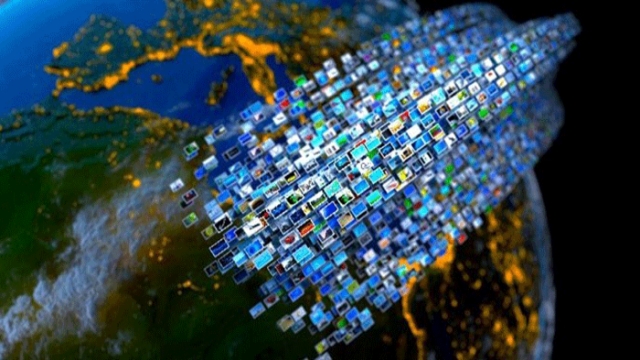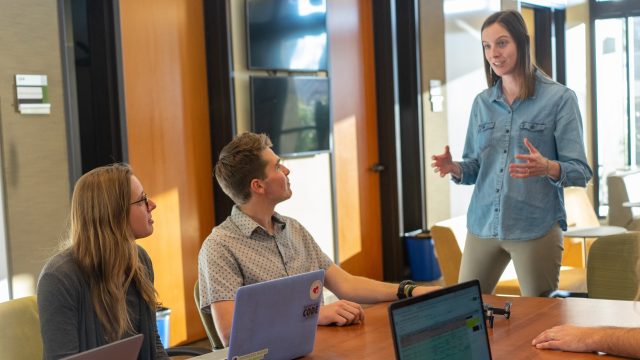
Education and training in digital skills for life and work
The emerging knowledge society requires requires educated citizens who are capable of accessing, evaluating, organizing, interpreting, and disseminating information that is increasingly in digital formats and exchanged using enabling digital technologies1.
A new report from the Working Group on Education of the Broadband Commission for Sustainable Development offers insights and recommendations on supporting sustainable and equitable development of digital skills for all stakeholders2. The Broadband Commission for Sustainable Development was established in 2010 by the International Telecommunication Union (ITU) and UNESCO, in response to then UN Secretary-General Ban Ki-Moon’s call to step-up UN efforts to meet the Millennium Development Goals (MDGs).
Insights and recommendations
Promising trends in current education practices and policy
Promising trends that encompass both education provision and policy-making include efforts to:
- Ensure digital literacy for all.
- Teach computer programming and coding skills to children and young people.
- Facilitate the development of digital skills needed to enter ICT professions.
- Foster ‘soft’ and ‘complementary’ digital skills.
Laying foundations for equitable and high-quality digital skills development
Holistic approaches — encompassing policy, implementation, funding and partnership — are needed to ensure that all learners have opportunities to cultivate relevant digital skills. Pillars of this broad and multifaceted approach include:
- Institutional capacity and continuity of provision.
- Appropriate involvement of government.
- Diverse and well-managed partnerships.
- Context-specific planning and provision.
- Scaling up successful provision.
- Applying existing technologies in innovative ways.
- Blending traditional ‘non-digital’ education approaches and digital applications.
- Bridging formal and non-formal digital skills provision.
- Enhancing the digital competencies of teachers.
- Building a rigorous evaluation and evidence base.
Future challenges and issues
Salient priority areas that policy-makers and practitioners will need to address as the digital society evolves over the next decade include:
- Continued public involvement in an increasingly commercially-driven sphere.
- Sustained efforts to address ongoing inequalities in skills and competencies.
- Rigorous data and indicators on digital skills across populations.
- Promotion of ‘open’ resources, especially open educational resources (OER).
Recommendations for governments and other stakeholders
Ensure effective government support and multi-stakeholder cooperation:
- Establish accountable agencies within governments to lead the development, regulation, and implementation of national strategies and master plans for digital skills development.
- Under the competence of the accountable governmental agencies, develop strategies to broker, expand, and improve multi-stakeholder partnerships that facilitate digital skills education.
- Incentivize IT firms, internet service providers, and other private sector organizations to support inclusive and equitable digital skills development, including programmes to upgrade the skills of workers, ideally with oversight from neutral, non-commercial brokers.
- Develop and endorse policies to promote free and open source software (FOSS) and to openly license the digital skills development resources and other open education resources (OER) produced with public funds, as called for in the Paris OER Declaration.
Ensure inclusion, equity and gender equality:
- Formulate education policies that promote and monitor the inclusion of digital skills development for disadvantaged groups irrespective of gender, age, race, or disability.
- Encourage non-formal digital skills providers to deliver programmes for out-of-school children, youth and adults, especially illiterate or unemployed adults through flexible face-to-face programmes in well-established community spaces and through affordable digital technology, including mobile phones.
- Prioritize public investment and incentivize the private sector to support gender equality in digital skills development with a particular focus on promoting girls’ and women’s participation, achievement and continuation in STEM studies and careers.
Promote quality and innovative provision:
- Set up collaborative taskforce teams of education institutions, IT industries, and academic institutes to enhance the development and provision of curricula and programmes for digital skills development.
- Set up quality assurance and accreditation mechanisms to monitor the quality of digital skills development programmes, and facilitate the recognition of skills across levels of studies, education providers, and possibly across borders.
- Make digital skills a key component of teacher training, with reference to UNESCO’s ICT Competency Framework for Teachers. Guide the review and updating of programmes to enable teachers to benefit from digital technologies and improve the digital literacy of students.
- Enhance the digital skills of teachers and develop collaborative capacity-building mechanisms between education institutions and IT industries.
Develop appropriate measurement and monitoring strategies:
- Support national statistics agencies and other agencies in regularly collecting disaggregated digital skills data, including through individual assessments, to facilitate a more robust and comprehensive understanding of digital skill divides.
- Explore the possibilities of aggregated usage of automatically generated data on the use of digital platforms and services as a means of mapping patterns of digital competencies and skills.
- Include, where relevant, questions in annual household surveys to gather self-reported information about individuals’ digital skill levels and digital skill needs. Also, encourage countries to share collected data with relevant international organizations, including UNESCO and ITU, to facilitate global and regional analysis.
Article and header image source: Digital Skills for Life and Work.
References:
- Gallardo-Echenique, E. E., de Oliveira, J. M., Marqués-Molias, L., & Esteve-Mon, F. (2015). Digital competence in the knowledge society. Journal of Online Learning and Teaching, 11(1), 1. ↩
- Broadband Commission for Sustainable Development (2017). Digital Skills for Life and Work. International Telecommunication Union (ITU) and UNESCO. ↩
Also published on Medium.





